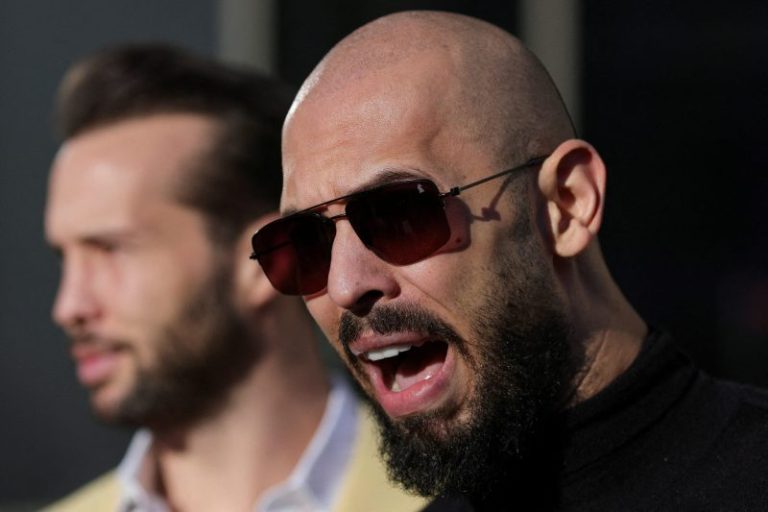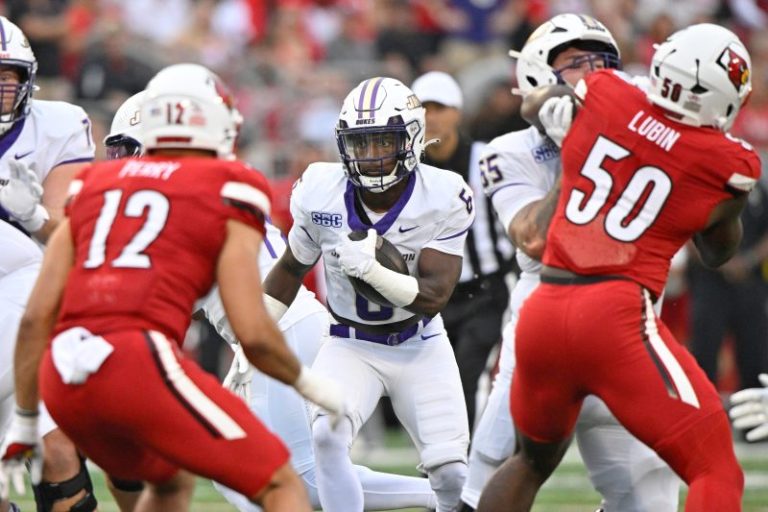Every week for the duration of the 2025 regular season, USA TODAY Sports will provide timely updates to the NFL’s ever-evolving playoff picture − typically starting Sunday afternoon and then moving forward for the remainder of the week (through Monday’s and Thursday’s games or Saturday’s, if applicable. And, when the holidays roll around, we’ll be watching then, too).
What just happened? What does it mean? What are the pertinent factors (and, perhaps, tiebreakers) prominently in play as each conference’s seven-team bracket begins to crystallize? All will be explained and analyzed up to the point when the postseason field is finalized on Sunday, Jan. 4.
Here’s where things stand with Week 16 underway:
AFC playoff picture
x − 1. Denver Broncos (12-2), AFC West leaders: The first team in the league to 12 wins and first AFC squad to clinch a playoff berth, New England’s loss Sunday also boosted the Broncos’ odds of winding up with the No. 1 seed. They can claim it in Week 16 if enough things break their way. Remaining schedule: vs. Jaguars, at Chiefs, vs. Chargers
2. New England Patriots (11-3), AFC East leaders: Their 10-game heater snapped, they failed to clinch the division Sunday and lost valuable ground in their bid for the No. 1 seed. But the Pats are still in driver’s seat to win AFC East and can wrap up a playoff spot with a win at Baltimore. Remaining schedule: at Ravens, at Jets, vs. Dolphins.
3. Jacksonville Jaguars (10-4), AFC South leaders: Win their sixth straight Sunday, and they’ll get at least a wild-card spot. But they could fall out of first place with a loss. Remaining schedule: at Broncos, vs. Colts, at Titans
4. Pittsburgh Steelers (8-6), AFC North leaders: They throttled Miami on Monday night, eliminating the Dolphins from postseason contention. No matter what else happens over the next three games, sweep the Ravens, and Pittsburgh secures the division. Remaining schedule: at Lions, at Browns, vs. Ravens
5. Los Angeles Chargers (10-4), wild card No. 1: They completed a season sweep of the Chiefs, officially eliminating the three-time-defending AFC champions from playoff consideration. The Bolts have now won six of seven but need another (and help) to wrap up a berth Sunday. A one-win advantage in AFC games (8-2) keeps them ahead of Buffalo. Remaining schedule: at Cowboys, vs. Texans, at Broncos
6. Buffalo Bills (10-4), wild card No. 1: Still alive to win their sixth straight AFC East crown after salvaging a split with the Pats, the Bills can lock into the field this weekend. Remaining schedule: at Browns, vs. Eagles, vs. Jets
7. Houston Texans (9-5), wild card No. 3: They’ve won seven of eight, including six in a row. Another victory plus a Jacksonville loss jumps Houston into first place in the AFC South. Remaining schedule: vs. Raiders, at Chargers, vs. Colts
8. Indianapolis Colts (8-6), in the hunt: Now in the hands of 44-year-old QB Philip Rivers, they face a steep climb back to relevance − their 7-1 start already feeling like ancient history. Rivers gave a valiant effort at Seattle last weekend, his first NFL action in nearly five years, but came up short. And the Colts’ schedule doesn’t let up henceforth, including Monday night’s date with San Francisco. Remaining schedule: vs. 49ers, vs. Jaguars, at Texans
9. Baltimore Ravens (7-7), in the hunt: Simply win out, and they retain the division title for the third straight year. Remaining schedule: vs. Patriots, at Packers, at Steelers
NFC playoff picture
x − 1. Seattle Seahawks (12-3), NFC West leaders: Splitting their season series with the Rams in Thursday night’s classic means they’ll wind up with the No. 1 seed if they simply win their final two games. Remaining schedule: at Panthers, at 49ers
2. Chicago Bears (10-4), NFC North leaders: How tightly packed is the NFC? One narrow Week 14 loss dropped the Bears from first place in the conference to seventh. Sunday’s win, in conjunction with Green Bay’s loss, put Da Bears back up to second overall. Now they’re a win from locking up a spot. Remaining schedule: vs. Packers, at 49ers, vs. Lions
3. Philadelphia Eagles (9-5), NFC East leaders: Get-right win vs. Raiders, along with Dallas’ loss last Sunday night, gave them some needed breathing room. Win Saturday at Washington, and the division title remains in Philly another year. Remaining schedule: at Commanders, at Bills, vs. Commanders
4. Tampa Bay Buccaneers (7-7), NFC South leaders: Hopefully coach Todd Bowles’ charges care (expletive) enough this week. A fifth loss in their past six games dropped them to .500 in Week 15, but Carolina’s loss put the Bucs back in first place. Their one-game advantage in the common-games tiebreaker is currently the difference with the Panthers. Beat Carolina twice, and the Bucs will still win the NFC South. Remaining schedule: at Panthers, at Dolphins, vs. Panthers
x − 5. Los Angeles Rams (11-4), wild card No. 1: They became the first team to clinch a playoff spot but lost the inside track for home-field advantage and a first-round bye after failing to sweep Seattle. Remaining schedule: at Falcons, vs. Cardinals
6. San Francisco 49ers (10-4), wild card No. 2: A win Monday locks them into the field and a tie for second place in the NFC West. Win out, which would entail completing a season sweep of Seattle, and the Niners would get the No. 1 seed. Remaining schedule: at Colts, vs. Bears, vs. Seahawks
7. Green Bay Packers (9-4-1), wild card No. 3: DE Micah Parsons got hurt Sunday, and so did the Pack’s positioning − down from the No. 2 seed to seventh due to their loss at Denver. But Green Bay is headed to postseason with a sweep of Chicago on Saturday night. Remaining schedule: at Bears, vs. Ravens, at Vikings
8. Detroit Lions (8-6), in the hunt: Tough loss to the Rams drops them 1½ games behind the projected playoff field. Yet Detroit remains within striking range of a wild-card berth and maybe still the NFC North crown. Remaining schedule: vs. Steelers, at Vikings, at Bears
9. Carolina Panthers (7-7), in the hunt: Had they beaten the Saints on Sunday, they simply would have needed one win over Tampa Bay to win the NFC South. But the Panthers came up light in New Orleans. Carolina and the Buccaneers will decide this on the field with two meetings between Weeks 16 and 18. Remaining schedule: vs. Buccaneers, vs. Seahawks, at Buccaneers
10. Dallas Cowboys (6-7-1), in the hunt: Sunday night’s crushing loss to the Vikings all but eliminated them − Dallas needing to win all its games and hoping the Eagles lose all of theirs if ‘America’s Team’ is to win the NFC East. Remaining schedule: vs. Chargers, at Commanders, at Giants
NFL playoff-clinching scenarios for Week 16
Denver Broncos clinch AFC West and the AFC’s No. 1 seed with:
Win + Chargers loss or tie + Patriots loss + Bills loss or tie
Denver clinches AFC West with:
Win + Chargers loss or tie OR
Broncos tie + Chargers loss
Buffalo clinches playoff berth with:
Win + Colts loss or tie OR
Win + Texans loss or tie OR
Tie + Colts loss OR
Tie + Texans loss
New England clinches playoff berth with:
Win or tie OR
Colts loss or tie OR
Texans loss or tie
Jacksonville clinches playoff berth with:
Win + Colts loss or tie OR
Win + Texans loss or tie OR
Tie + Colts loss OR
Tie + Colts tie + Texans loss
Los Angeles Chargers clinch playoff berth with:
Win + Colts loss or tie OR
Win + Texans loss or tie OR
Tie + Colts loss OR
Tie + Colts tie + Texans loss
Philadelphia clinches NFC East division title with:
Win OR
Cowboys loss OR
Tie + Cowboys tie
Chicago clinches playoff berth with:
Win + Lions loss or tie OR
Tie + Lions loss
Green Bay clinches playoff berth with:
Win + Lions loss or tie OR
Tie + Lions loss
San Francisco clinches playoff berth with:
Win OR
Lions loss OR
Tie + Lions tie
NFL teams eliminated from playoff contention in 2025
x – clinched playoff berth
y – clinched division
z – clinched home-field advantage, first-round bye
This post appeared first on USA TODAY










